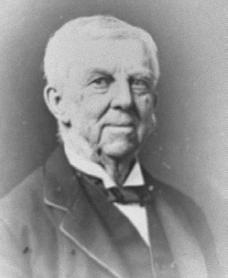 "Morning, Weasel."
"Morning, Weasel." They've painted over the burns on the sidewalk where she stubbed out her cigarettes with the tip of a crutch. Somebody else gives out the dog cookies at the cash register, calls customers to tell them their special orders have arrived, organizes the shelves of customer "holds," solves paperwork tangles. But every time I hear a metal cart half full of books bump and ring off the elevator, or look across from the Used Books Buying Desk when voices get raised at the Check Out, or I have a particularly comic encounter with some eccentric soul, I still look for The Wolverine.
It's been a year. I was reminded just the other day, by a mutual friend. It has been as long as that, longer, since we last shared a bitter laugh, growled together at the fate of the world, grinned across the floor at each other at some fresh absurdity. We went to a play once, not very well done, and coming out at the intermission, unsure if we really wanted to go back in, she pointed down the sidewalk, hacked despondently, and said "Go ahead, you bastard, run away -- just leave me here to die." Death was not something she feared terribly much. She fought it, refused it's attendant sympathies and show, laughed at it even as it came to her. She was a small woman, my friend and coworker, Jennifer Kuhn. Polio took the legs from under her when she was still a child. Cancer took her job, her hair, her mobility, even her dignity from her, but she laughed even at that. At the end, in that strangely vast looking hospital bed, she looked as small and vulnerable as a baby bird. "I don't dress for visitors anymore -- hope you don't mind," and then, drugged and still wracked with pain, she laughed. It was a harsh laugh, but then it always had been; smoky and loud. The last time I was with her, only days before she died, she said, "Dying is hard -- I wish it was over. I'm ready to go. Can't imagine why it's taking so long." And she laughed again, less loudly, not long, but still true.
"... how little alteration in good spirits the approaches of death make" as Bacon observed.
She called herself a badger, a wolverine, worse. When I asked her once why she identified so with small vicious mammals she said, "Well, I am a small vicious mammal." Her wit could be unkind, and her attitude defensive, if not occasionally offensive, but she was really all bluster and bark. Really, she was profoundly empathetic, perhaps too much so, particularly with the truly vulnerable: the crippled, the mad, the old, the young, the four-footed and the misfit. If she snapped, she snapped at the privileged, the pompous, the thoughtlessly mobile, the sententious and the overbearing. Little ass on the hard floor, her braced legs straight out before her, shelving books, she looked up at most people but always said to me, "You don't look so big from down here, Weasel."
That she invited me into her den, saw in me just a brother mammal, called me "Weasel," and friend, was and is a point of great pride. Not everyone was called to be her familiar.
We at the bookstore still miss her so. But as Montaigne says, "our feelings continue beyond this life," and as mine for her are still tender, I remind myself how she would have rolled her eyes and barked at such sentiment. Yet she did say it, more than once, near the end.
"Love you, Weasel."
Love you still, Wolverine.





















